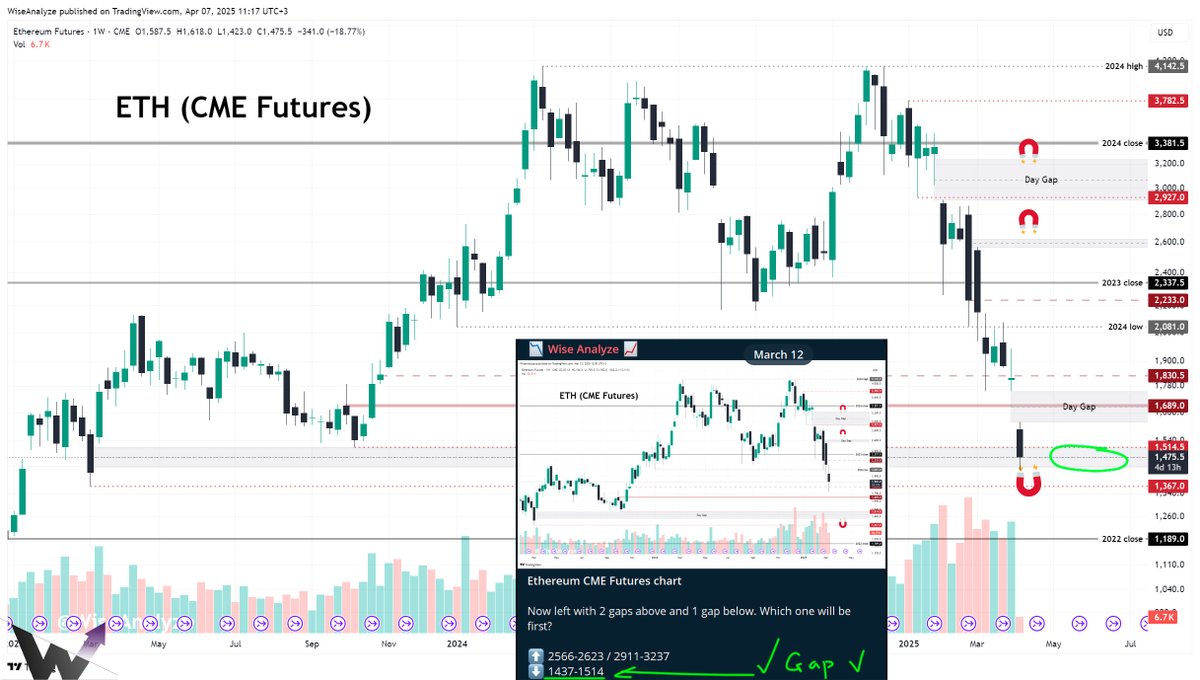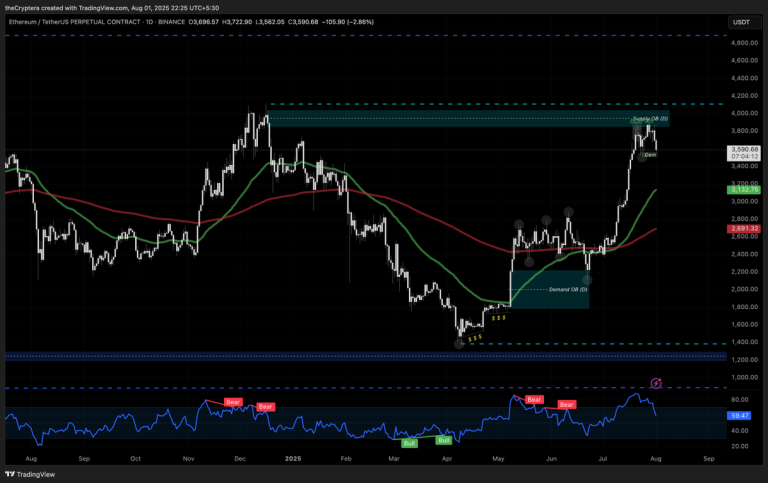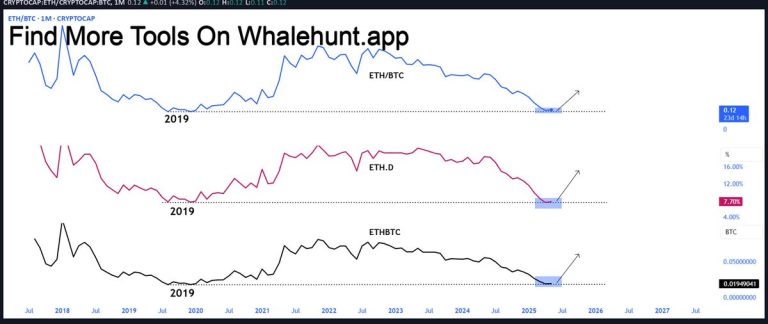
Ethereum’s Journey: From CME Gap to Liquidity Pools
Introduction
In the ever-evolving landscape of cryptocurrencies, one name has consistently captured the spotlight: Ethereum. On April 7, 2025, Ethereum, the world’s second-largest cryptocurrency, finally closed a significant gap it had created on the Chicago Mercantile Exchange (CME) back in 2023. This event, tweeted by the pseudonymous analyst @WiseAnalyze, marked a pivotal moment in Ethereum’s journey, sparking curiosity about its future trajectory. Let’s delve into this development, exploring the implications, potential resistance levels, and the broader context of Ethereum’s price action.
Closing the CME Gap: A Milestone
Ethereum’s closure of the CME gap signifies a significant milestone in its price history. A CME gap, or ‘gap down,’ occurs when the price of an asset on a futures market gaps below its spot market price, creating a void in the price chart. Closing this gap indicates that the price has returned to fill this void, suggesting a level of stability and resilience in Ethereum’s price action [1].
The Path Ahead: Resistance Levels
Binance Futures Liquidity Pool at $1367.5
As @WiseAnalyze pointed out, there’s a liquidity pool below $1367.5 on Binance Futures that could attract more volume, potentially acting as a resistance level. Liquidity pools, a product of decentralized finance (DeFi), can significantly impact price action when they’re large enough to influence trading volumes [2].
The 2022 Close at $1196: A Potential Bottom
Below the Binance Futures liquidity pool, the 2022 close at $1196 could mark the bottom of a higher timeframe range. This level has historical significance, as it represents a previous swing low. If Ethereum’s price revisits this level, it could signal a potential bottom, setting the stage for a new uptrend [3].
Ethereum’s Fundamentals: The Shanghai Upgrade and Beyond
Ethereum’s price action isn’t just about market dynamics; it’s also driven by its fundamentals. The upcoming Shanghai upgrade, expected in the latter half of 2025, promises to introduce significant changes, including the ability to withdraw staked ETH. This upgrade could boost Ethereum’s liquidity and drive up its price [4].
Moreover, Ethereum’s transition to proof-of-stake (PoS) with the Merge in 2022 has opened doors to new use cases and applications. The growing ecosystem of DeFi protocols, non-fungible tokens (NFTs), and decentralized autonomous organizations (DAOs) built on Ethereum continues to attract users and developers, further strengthening its fundamentals [5].
Conclusion: Navigating the Crypto Seas
Ethereum’s journey is a testament to its resilience and adaptability. From creating and closing CME gaps to navigating liquidity pools and historical resistance levels, Ethereum has weathered numerous storms in the crypto seas. As we look ahead, the Shanghai upgrade and Ethereum’s robust fundamentals suggest a promising outlook. However, the crypto market’s volatility serves as a reminder that the journey is far from smooth sailing. By understanding and respecting these resistance levels and fundamentals, we can better navigate the crypto seas, ready to capitalize on opportunities as they arise.
References
[1] CME Gap Explained: Why They Form and How to Trade Them
[2] Liquidity Pools: The Backbone of Decentralized Finance
[3] Support and Resistance: A Comprehensive Guide
[4] Ethereum’s Shanghai Upgrade: What You Need to Know
[5] Ethereum’s Merge: A Comprehensive Guide
Further Reading
– @WiseAnalyze’s Twitter Profile
– Ethereum’s Price History on CoinMarketCap
– Ethereum’s Official Website








